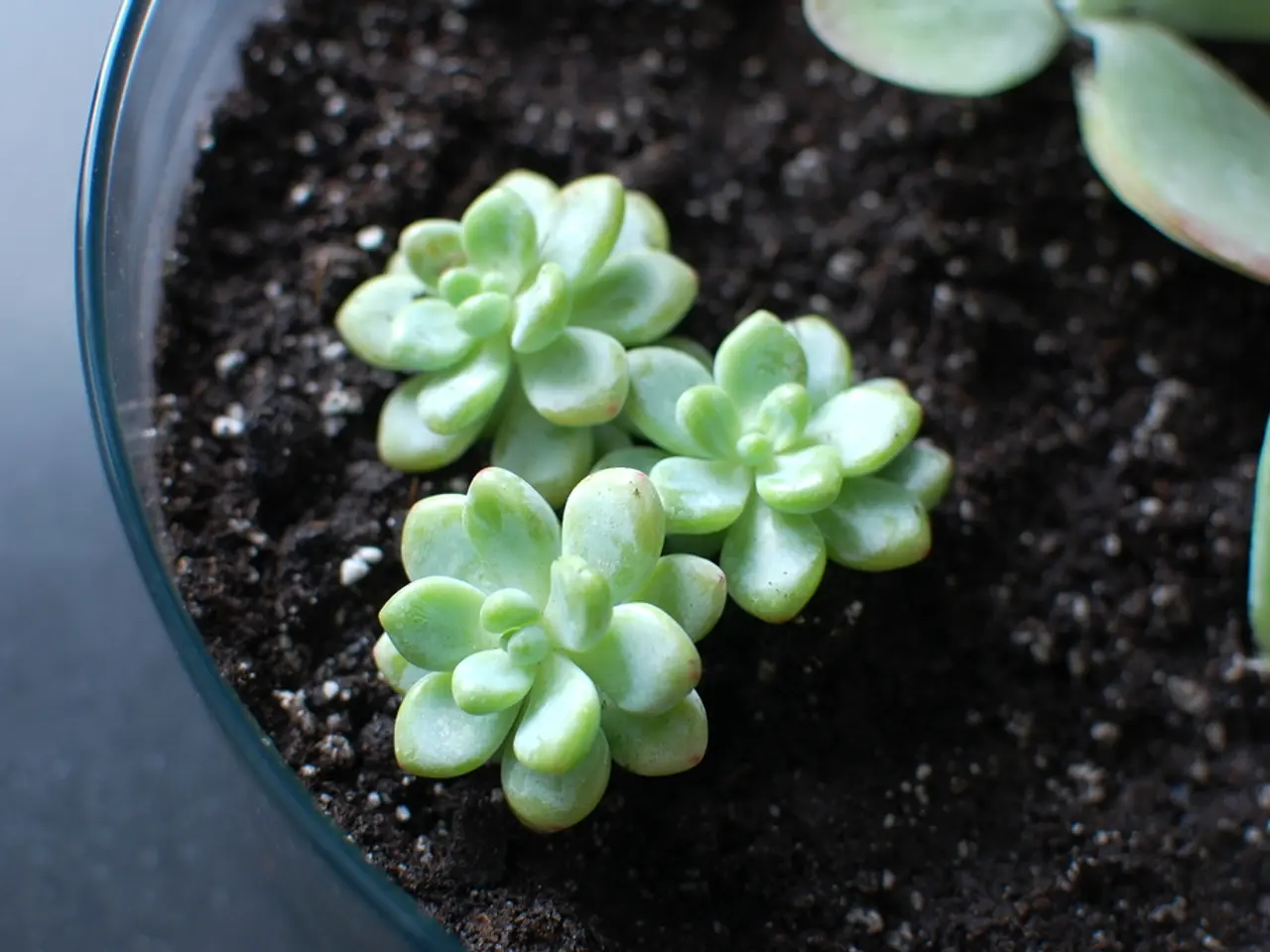Advantages and Disadvantages of Organic and Synthetic Fertilizers
=====================================================================================================
In the world of gardening and agriculture, a fundamental question arises: which type of fertilizer is best for long-term soil health and sustainable plant growth? Let's delve into the differences between organic fertilizers and chemical fertilizers.
Organic fertilizers, made from natural substances like plant and animal wastes and powdered minerals, have gained popularity due to their eco-friendly nature. They enrich the soil by breaking down and releasing nutrients, improving its overall nutrient profile and structure. Organic fertilizers release nutrients slowly, reducing the risk of fertilizer burns and allowing plants to absorb nutrients effectively.
On the other hand, chemical fertilizers are made from refined fertilizer substances and chemical fillers, often including petroleum products and rocks. They provide rapid nutrient availability and initial crop yield increases, but their long-term effects on soil structure and plant health are generally less favourable. Chemical fertilizers often lead to soil degradation over time, including acidification, nutrient imbalances, and reduced microbial activity, which can harm soil health and reduce its productivity in the long term.
Organic fertilizers contribute to improved soil structure by increasing soil organic carbon and enhancing soil microbial populations by around 30%, which promotes better nutrient cycling and water retention by 20% in soil. This leads to healthier plants and increased long-term fertility with gradual nutrient release that favours sustainable crop productivity (15–25% increase). They also reduce greenhouse gas emissions significantly compared to chemical fertilizers.
Biofertilizers, a subset of organic fertilizers containing beneficial microbes, have been shown to further enhance microbial balance, plant immune responses, and yield (20–28%), combining benefits of both organic fertility and pest control with sustainability ratings similar to organic fertilizers.
Chemical fertilizers provide clearly defined nutrient ratios on the label, minimizing the risk of over-fertilizing. However, long-term use of chemical fertilizers can cause the buildup of dangerous chemicals such as arsenic, cadmium, and uranium, and may alter the soil's pH permanently. They are a rich source of nitrogen, phosphorus, and potassium.
Research from recent agricultural studies confirms organic amendments increase soil organic carbon and integrated fertility, especially when replacing a portion of chemical nitrogen fertilizer. They improve both soil physical properties and biochemical fertility parameters, essential for long-term sustainable agriculture.
In summary, organic fertilizers foster long-term soil health and sustainable plant productivity by improving soil structure and biological activity, while chemical fertilizers may boost short-term yields but often degrade soil quality and plant health if overused. The choice between them should consider environmental sustainability and crop needs, with emerging trends favouring integrated organic and microbial approaches for optimal long-term outcomes.
References:
- Lal, R. (2004). Soil carbon sequestration to mitigate climate change. Science, 304(5677), 1623–1627.
- Smith, P., et al. (2014). Climate-smart agriculture: policies, practices and challenges. Agriculture, Ecosystems & Environment, 187, 1–12.
- Liu, S., et al. (2015). Soil organic carbon and nitrogen dynamics in response to long-term fertilization with organic and inorganic fertilizers. Agriculture, Ecosystems & Environment, 208, 1–10.
- Kaiser, K., et al. (2016). Organic farming increases soil organic carbon stocks. Nature, 538(7626), 533–536.
- Gattinger, E., et al. (2017). The effect of organic farming on soil quality: a meta-analysis of long-term field studies. Journal of Cleaner Production, 151, 1614–1625.
- Incorporating organic fertilizers into one's gardening routine could be a step towards enhancing home-and-garden practices, as it promotes long-term soil health and sustainable plant growth, providing benefits similar to those seen in organic farming.
- For individuals interested in home-and-garden tasks, particularly gardening, learning about the benefits of organic fertilizers over chemical alternatives can contribute to a more eco-friendly lifestyle, resulting in healthier plants and a more sustainable environment.




